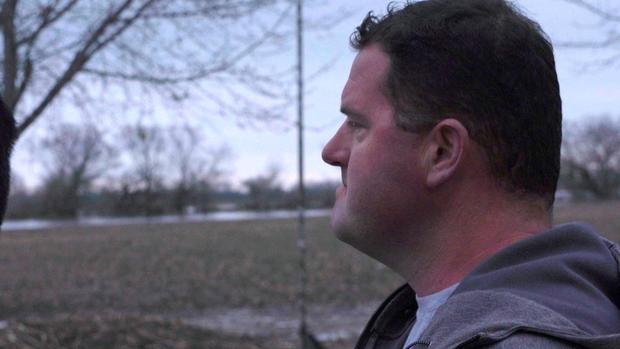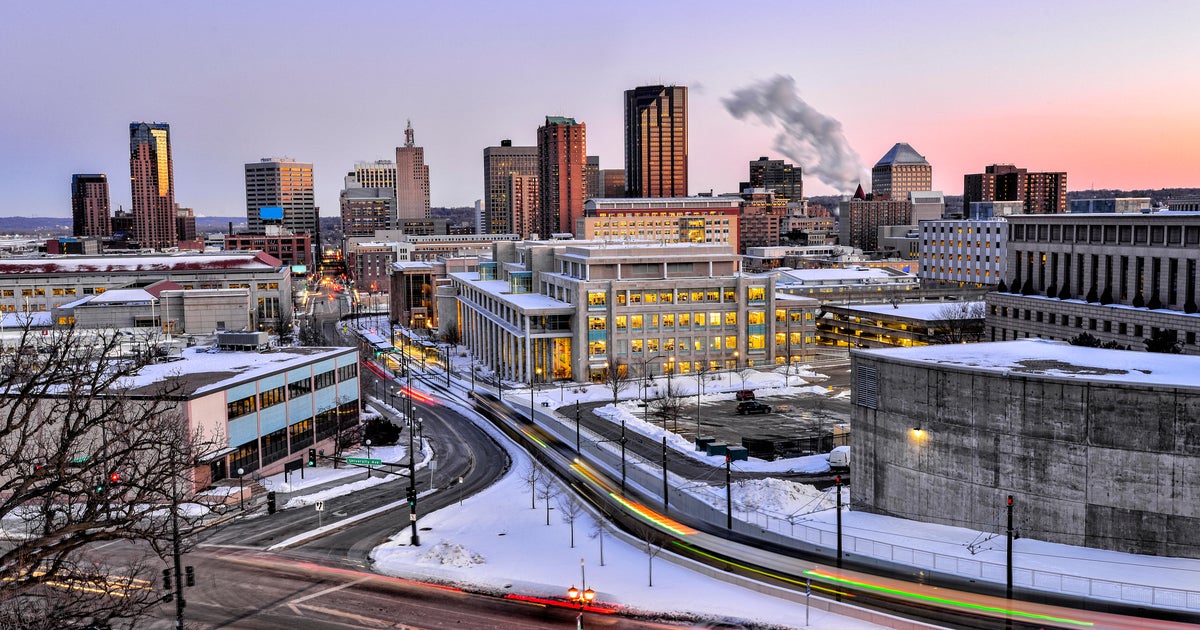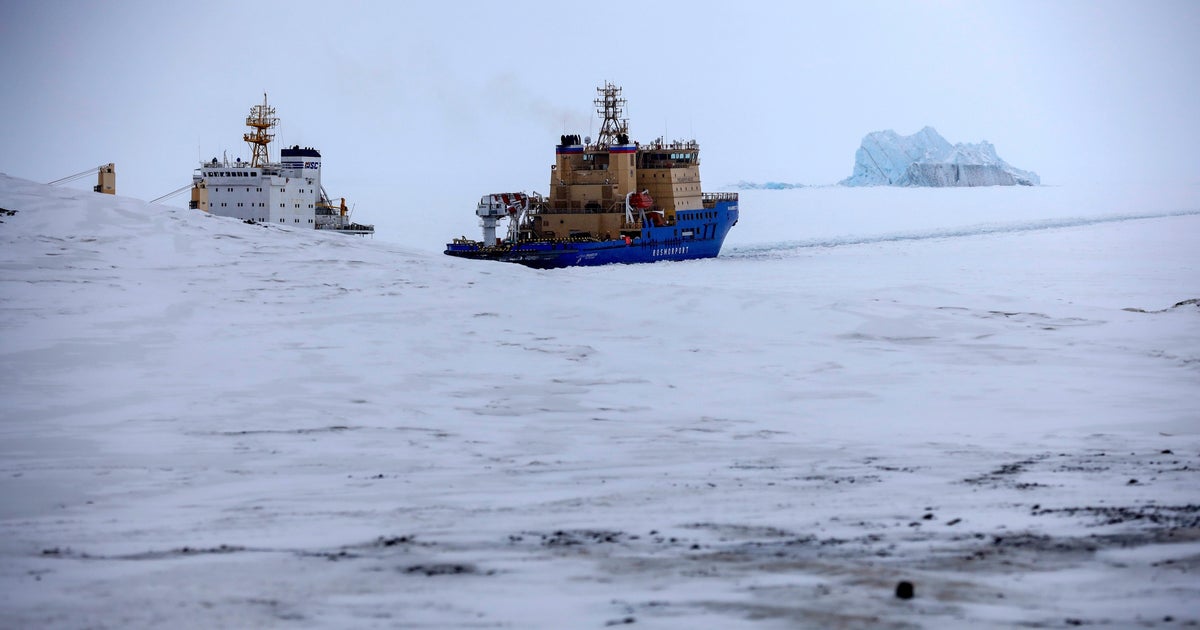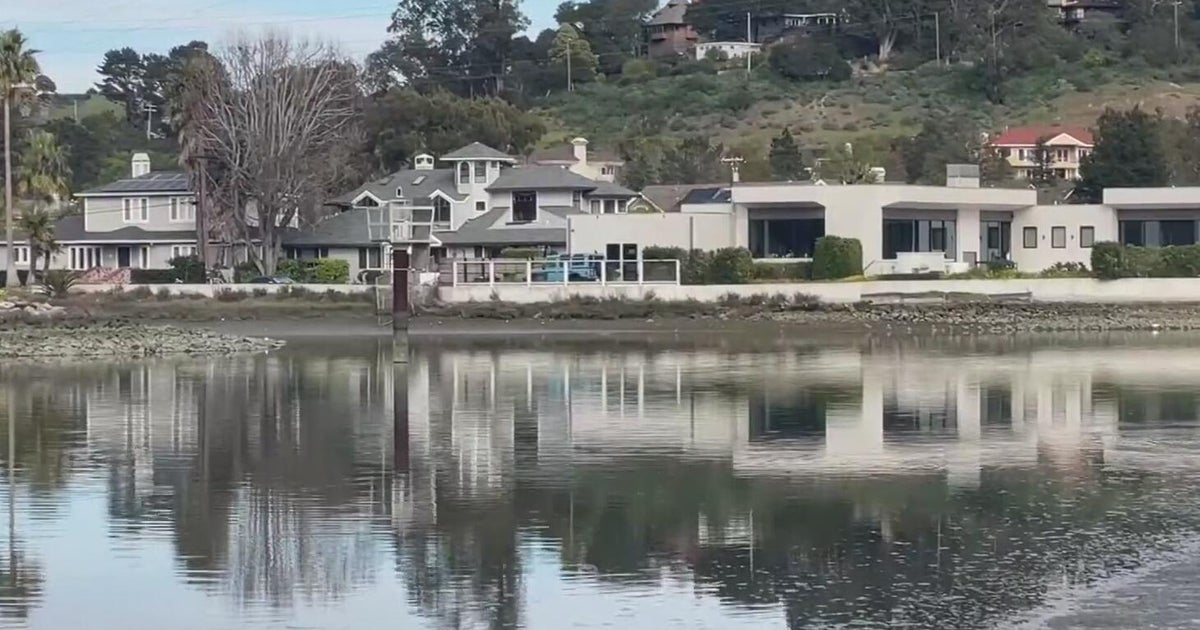"Everything is changing": Farmers seek solutions, not slogans, on climate change
Watch the CBSN Originals documentary, "A Climate Reckoning in the Heartland," in the video player above.
Among climate scientists, the reality of climate change is virtually indisputable, with a consensus of more than 97 percent agreeing that the climate is changing and human activity is the primary cause. A majority of American farmers —finely attuned to conditions affecting their land and livelihoods — also agree the climate is changing, yet many of them express doubts about the reasons and reject the label "climate change." Dialogue among farmers and scientists is now evolving, however, and helping to bridge the divide on the issue.
"I'm scared for my future. I'm scared for my family's future," said Brett Adams, a fifth-generation farmer in Peru, Nebraska, located 50 miles south of Omaha, along the still flooded Missouri River. A levee breach during the "bomb cyclone" storm last March left 80 percent of his 4,000-acre farm under water. "It's just sad to see something that was so great turn into this."
Though he's seen the damage caused by increasingly extreme rainfall, he resists putting a name to the trend.
"I'm not a climate change guy, as far as climate change, global warming, or any of that stuff," Adams said. "But have I seen the weather change in, say, my 20-year farming career? Absolutely."
Adams is not alone. A 2016 Iowa State University social science study on farmers' attitudes towards climate change reveals that "although two-thirds of farmers believe that climate change is occurring, only 40 percent implicate human activity." That's far below the 62 percent of the general population that agrees global warming is mostly human-caused.
The reasons for the skepticism among farmers are varied and complicated, ranging from mixed climate signals to partisan politics and everything in between.
CBS News spoke to Adams at length and a common theme of the conversation was, "Everything has changed. It's not just the climate."
"Thirty, 40, 50 years ago the population of Omaha was one-tenth of what it is now. There's so much more concrete and runoff in the metropolitan area and that has changed the inflow into the rivers," says Adams. But even with that increased flow, according to Adams, the levee near his home, which was built in 1950, has not been upgraded since. In his view, that unchanged infrastructure played a big role in the flood.
Still, Adams has no doubt that something is different with the weather. "Two-inch rains used to be a big deal… now it seems like there are three-, four-, five-inch rains all the time," he said.
He's right. According to the federal government's 2018 National Climate Assessment, since the 1950s, heavy rain events in the Upper Midwest have increased by more than a third. Scientists say climate change has contributed to that increase, but Adams is unsure. "No one even knows, is this even change or is this normal? We don't know. Maybe this is a long cycle," he said.
"They talk, talk, talk about global warming and then comes last winter, one of the coldest, snowiest winters on record. Well, is that an aspect of global [warming]?" Adams contemplates, "Then everybody looks back and says you must be full of baloney."
Omaha, Nebraska did in fact record its snowiest winter ever in 2019, and February was one of the coldest on record. Globally, however, 2019 is on track to be the second or third warmest year on record. With mixed climate signals like that, to understand the climate change connections you either need a degree in atmospheric sciences or a willingness to take the scientists at their word. And that's where things turn from science to ideology.
"It's embedded deep. It's woven so deep," said Graham Christensen, also fifth-generation grain producer in the region. "It's very bewildering for me too that we are battling some of the scientific consensus on this."
Christensen is leading an effort to educate farmers on the benefits of regenerative farming practices that aim to improve soil health, the environment — and profitability as well. In his travels around the state, Christensen meets with farmers in some of the most remote rural stretches of the nation.
"We don't get as much access to information that other people do," he says, observing that what access farmers do have is often limited to conservative radio or television.
Compounding that, he says, is the fact that many young, creative people are leaving rural areas due to a lack of opportunity. He believes this perpetuates a homogenous narrative: "The same people get the same thing pounded over and over again into their heads and they believe it."
Political identity appears to play a significant role in farmers' skepticism about climate change. In Adams's view, "The Democrats kind of came up with global warming, right? It's a critical platform for them. So I think that's why in red states they have different views on it."
He added, "When people start talking about climate change it's like someone is trying to push an agenda here."
J. Gordon Arbuckle, a sociologist at Iowa State University, is part of team of university extension and agriculture outreach educators that's been doing research on this subject since 2011. "I think it's mostly political worldview. Climate change and similar terms are just plain not welcome in some political circles," said Arbuckle.
Building trust and finding common ground
While farmers like Adams may be dubious about what they view as a political agenda, Christensen says he does not get that same pushback.
"When I go out into places and talk about climate change it's usually not that divisive," he said. In his experience, Nebraskans are more open to discussing climate change among people they trust. "These farmers respond better when they hear it from other farmers and ranchers," Christensen said.
Former Illinois State Climatologist Jim Angel has lifelong experience with farmers. He says climate change acceptance can be risky proposition because it has consequences: "To admit to human-induced climate change means you are now obliged to take significant steps to reduce greenhouse gas emissions."
Angel continues, "Some of the ideas being advocated for greenhouse gas reduction, such as a carbon tax or the promotion of a vegan diet, would have significant impacts on farmers. That makes my job of talking to farmers about climate change a lot harder."
To bridge the political and cultural gap on the issue, Adams suggests ditching what he considers the loaded term "climate change" and replacing it with more neutral discussion of extreme weather. "When you stop and talk about it that way, you get more understanding of it than just plain, 'do you believe in climate change?'," he said.
The research supports this. "Terms like 'increasing weather variability,' 'long-term weather patterns' and 'extreme weather events' and their local impacts are less controversial than the topic of climate change," Arbuckle and his Iowa State University colleagues write. They also suggest "limiting discussion of the causes of climate change, which are less relevant to changing farm practices and more likely to alienate audiences."
And they stress that it's worthwhile to keep engaging with farmers on the topic. "Farmers and advisers, like anyone else, can change their perspectives on things as they learn from new experiences and information," they write.
Christensen says he's had great success in minimizing talk of causes and focusing on providing solutions to help save farms with sustainable agricultural practices. "Once they do this stuff, all of a sudden they are believers. They are saying the right things, defying the stigmas and doing the right thing for the next generation," he said.
Solutions are exactly what Adams wants to focus on right now on his flood-damaged farm. "I have millions and millions of dollars lost in this. You could walk through my local community right now and ask these questions about climate change and the answer you'd probably get is they could probably give a damn about climate change, because they are beaten down from this disaster and they just need help getting back on their feet."




